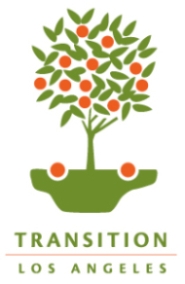
| |
| home |
| calendar |
| find a local group |
| about TLA |
| contact |
| WHAT IS TRANSITION? |
The Transition concept is a proactive, positive visioning, forward thinking approach to the realities of our future. Peak oil and climate change, combined, demand that we rethink virtually every aspect of our modern world, and that we begin to mobilize this Transition immediately. In the near future, forecasts are for great change:
The Transition movement declares that a future with less oil could possibly be better than what we have now - IF we consciously design it to be that way. Through the Transition movement, we Transition society from our current high-power, high-consumption lifestyle toward our inevitable lower-powered future. The goal is to increase societal RESILIENCE, our ability to adapt and to weather the great changes ahead. The "Transition Town" concept was developed in the UK and captured in blog and book form by Rob Hopkins. There are now over 100 official Transition Initiative sites worldwide -- local areas in the UK, Australia, Japan, and beyond -- which are preparing for change by organizing themselves and building local resilience. |
| What is Resilience? |
Resilience is our ability to adapt to change. per Rob Hopkins, The Transition Handbook:
More:
|
TRANSITION LOS ANGELES CITY HUB Here in Southern California, the Transition Los Angeles city hub faciliates communication between the many local pods in the greater Los Angeles basin. (Find a local group) Transition action north of Los Angeles is concentrated around Santa Barbara and the Tri-Counties area. To the south, check Transition Laguna Beach. � |
||
| HOW DO I LEARN MORE? There are several ways you can learn more about Transition and get involved in the action.
|
||